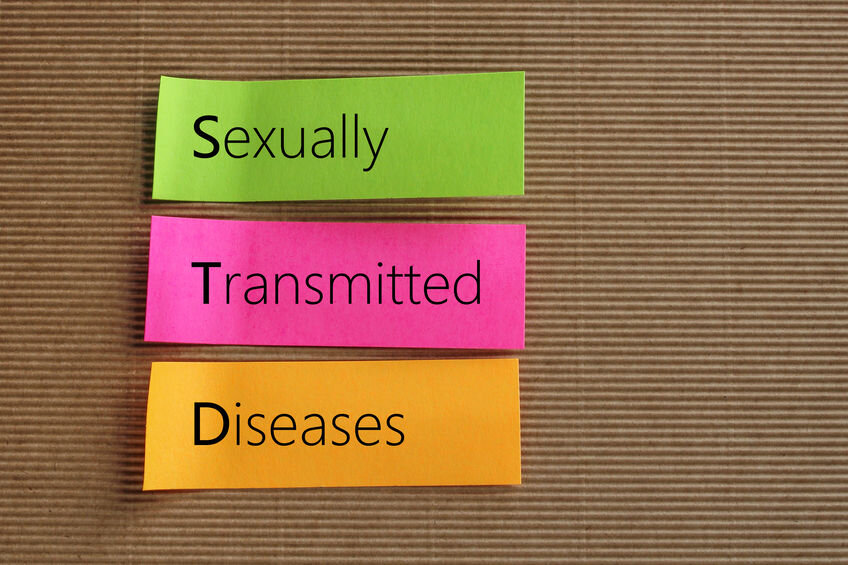Take Control of Your Sexual Health with an STD Check
June 12, 2020 by Justin Lehmiller
**Note: This post is sponsored by STDcheck.com
Sexually transmitted infections (STIs) are a significant public health concern, with cases of syphilis, gonorrhea, and chlamydia recently reaching a record high in the United States. There is much work to be done in terms of combatting the high prevalence of STIs, and improving sex education is certainly one important avenue. However, it’s also vital that we reduce barriers to STI testing in order to ensure that infections are detected and treated earlier.
Many people at risk for STIs fail to get screened for them, and there are numerous reasons for this, including issues with access to care. However, a significant obstacle to widespread STI testing is the fact that shame, fear, and embarrassment hold many people back from getting tested in the first place.
Studies have found that the more STI-related stigma and shame people feel, the less likely they are to have ever been tested [1]. Likewise, research has found that fear of social consequences holds many people back from getting tested for HIV [2].
The fact that people feel this way isn’t surprising, especially in light of research finding that, even among some healthcare professionals, it is common for people to pass judgment on those who contract STIs—and they judge them more harshly than people who contract non-sexual infections [3].
So how can we encourage more people to get tested, especially those who feel a lot of shame, embarrassment, and anxiety around getting screened in the first place? Enter STDcheck.com, a service designed to help combat these concerns.
STDcheck.com provides a confidential testing process that can that addresses many of the most common concerns people have about getting tested. For example, some people are not comfortable talking to their primary care providers about sexual matters and/or are afraid of being judged by their doctor, some are worried about having STI testing on their medical records, and some are concerned about positive results increasing their insurance rates. For people with these concerns, seeking care through a private, confidential service may help put their mind at ease.
Likewise, you don’t need to show an ID when you go in for testing (you simply show a code that you receive via email instead) and test results are accessed online rather than someone calling and/or leaving a voicemail.
The way it works is that you order your desired STI test package online, visit one of their testing sites for a 5-minute urine and blood test, and receive your results in 1-2 business days. Tests cover the most common STIs, including HIV, herpes, hepatitis, syphilis, gonorrhea, and chlamydia.
The results come back faster than they might otherwise would if you went to an STD clinic, where it can sometimes take up to a week to find out. In this way, it also reduces the anxiety associated with a long waiting period.
In the event of a positive result, physician consultation and treatment is provided.
One limitation to this service is that swab testing is not performed, so if you want or need oral and/or rectal swab tests to screen for possible infections in those sites, you would need to visit your doctor or an STI clinic.
Also, there is an out-of-pocket cost associated with utilizing this service, so it’s not going to be in everyone’s budget—but for those on the lookout for confidential and quick results, it’s an option that is definitely worth considering. To learn more, check out their website here.
Want to learn more about Sex and Psychology ? Click here for previous articles or follow the blog on Facebook (facebook.com/psychologyofsex), Twitter (@JustinLehmiller), or Reddit (reddit.com/r/psychologyofsex) to receive updates. You can also follow Dr. Lehmiller on YouTube and Instagram.
[1] Morris, J. L., Lippman, S. A., Philip, S., Bernstein, K., Neilands, T. B., & Lightfoot, M. (2014). Sexually transmitted infection related stigma and shame among African American male youth: implications for testing practices, partner notification, and treatment. AIDS patient care and STDs, 28(9), 499-506.
[2] Stall, R., Hoff, C., Coates, T.J., Paul, J., Phillips, K.A., Ekstrand, M., … & Diaz, R. (1996). Decisions to get HIV tested and to accept antiretroviral therapies among gay/bisexual men: Implications for secondary prevention efforts. Journal of Acquired Immune Deficiency Syndromes, 11, 151-16.
[3] Klein, V., Brunner, F., Grabowski, M., & Turner, D. (2020). Stigma Surrounding Sexually Transmitted Infections among Medical Students in Germany. The Journal of Sex Research, 1-8.
Image Source: 123RF/chrupka

Dr. Justin Lehmiller
Founder & Owner of Sex and PsychologyDr. Justin Lehmiller is a social psychologist and Research Fellow at The Kinsey Institute. He runs the Sex and Psychology blog and podcast and is author of the popular book Tell Me What You Want. Dr. Lehmiller is an award-winning educator, and a prolific researcher who has published more than 50 academic works.
Read full bio >


